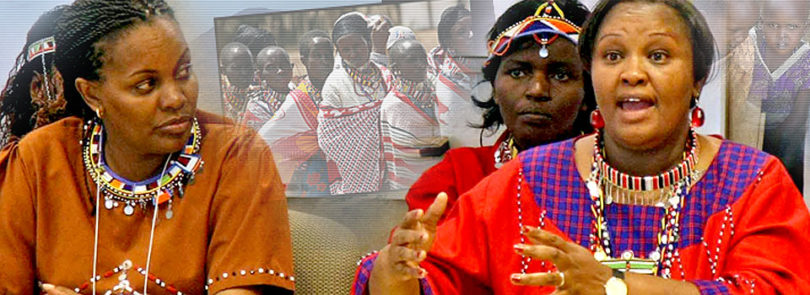The Maasai women of Kenya’s Rift Valley Province are homemakers, health educators, small business owners, social workers, and community advocates. Yet they have had few opportunities to participate in the political process that affects them and their families on a daily basis. Now a new exchange program is helping them overcome challenges and rise to their potential as effective participants in the public arena.
In fall 2007, the Carl Vinson Institute of Government International Center received a grant from the U.S. Department of State’s Bureau of Educational and Cultural Affairs to develop and carry out an exchange of visits between women leaders in Kenya and their counterparts in Georgia. The Institute’s African program specialist Njeri Marekia-Cleaveland is directing the project in partnership with the Kenyan nongovernmental organization, Family Mediation and Conciliation, and two Maasai women’s organizations, RETO and Voices of Women.
Even though women compose some 51 percent of Kenya’s population, the lack of women leaders in the spotlight of civic life has contributed to the denial of their rights, explained Marekia-Cleaveland.
“This highly interactive program is intended to give the Kenyan women the confidence they need to contribute to policy making and government in ways that improve the quality of life for families and for women in particular,” she says. The Kenyan women are coming in two groups starting in spring 2008. Two groups of Georgia women will subsequently travel to Kenya to gain a better understanding of women’s leadership from a global perspective.
The first delegation of Maasai women arrived on April 26 of this year to begin a three-week agenda that started in the Athens community and on the UGA campus with site visits to various nonprofit organizations and programs on such topics as gender issues, leadership, communication skills, poverty alleviation, ethics, grant writing, gender-based violence mitigation, grassroots organizing, and conflict resolution.
Mayor Heidi Davison of the Athens-Clarke County Government found the women to be eager to learn.
“On an official level, the various aspects of open government and citizen participation were of great interest to the delegation members. When they joined with other Athens women leaders in a more informal setting, it quickly became apparent that they are kindred spirits to those of us here who are working to improve the lives of others,” she said.
The delegation also spent a week in the Atlanta area, visiting with representatives from state government agencies and nonprofits and gaining a better understanding of Georgia’s election and lawmaking processes during a tour of the state capitol. Karen Handel, Georgia’s Secretary of State, spoke with the women about her career path in public service and the challenges she faces in her position as a state government executive.
By the end of the visit, the Maasai women were motivated about putting into action what they had learned.
“I am excited about returning home with many ideas to share. This trip has been a life-changing experience,” said participant Christine Njeri Pulei.
“This first exchange turned out to be a mutual learning experience for everyone involved. I am confident that the networks forged will remain after the project has ended,” noted Marekia-Cleaveland.








